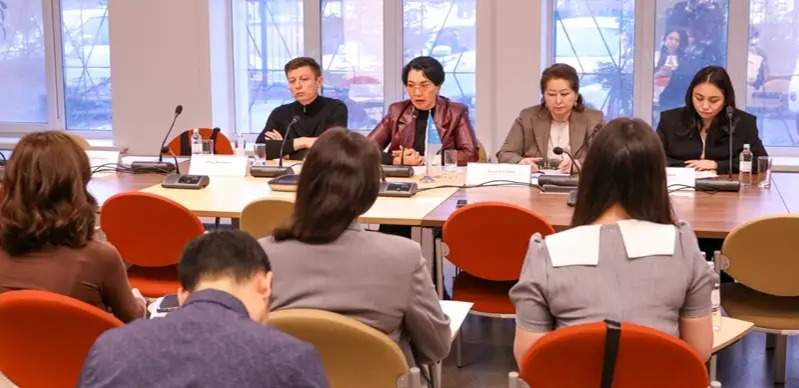Kazakh documentary sheds light on sexualized violence, captures public attention

The issue of sexual violence is acute globally and in Kazakhstan. “Gorgon,” a Kazakh documentary directed by filmmaker Rinat Balgabaev with the support of the United Nations (UN) Women Kazakhstan, sheds light on this important topic. The challenging theme has echoed in the souls of the audience and gained around one million views since its premiere in early March, reports Kazinform News Agency correspondent.
The name of the documentary, Gorgon, originates from Greek mythology, referring specifically to a creature named Medusa and her sisters. These beings were depicted with snakes for hair and the power to turn anyone who looked directly at them into stone.
According to one version of the myth, Medusa was originally a beautiful maiden who was raped by Poseidon in the temple of Athena. Athena, in turn, transformed Medusa into a Gorgon as punishment. This act of transforming Medusa, which can be interpreted as a form of victim-blaming, casts her into the role of a monster, thus perpetuating a cycle of violence against her.
In 2022, a trend with the image of Medusa Gorgon became popular in social media. Women posted photos and images, including body tattoos, with an image of the Greek mythology figure. This action underlined a hidden meaning that a woman had been subjected to sexualized violence.

Such films as “Gorgon” raise complicated and sensitive questions that should not be ignored.
The film features women, who are survivors of sexual violence. Along with women’s stories, the film provides professional views of experts. The film also contains a link to the guide for victims of violence and contacts of family support crisis centers. Notably, specialists work not only on the consequences of domestic violence but also study the causes of violence against women and children. Gender-based stereotypes are named as one of them.
"In the film, we tried not only to highlight the scale of the problem of sexualized violence in Kazakhstan, to give women who have survived violence an opportunity to tell their stories but also to stimulate society to provide support and contribute to changing existing social norms. The film invites everyone who cares about the issue of violence to support survivors and promote zero tolerance for all forms of violence in society," said Rinat Balgabaev at a press conference in Astana on April 8.
UN reports show that annually, one in every six women in Kazakhstan experiences violence. In many countries, including Kazakhstan, cases of gender-based violence remain hidden. Victims are subject to stigmatization and discrimination from society because of victim blaming, particularly prevalent in societies with strong patriarchal norms like Kazakhstan.
“Heroines who bravely shared their stories are an example of courageous women inspiring everyone who has experienced violence not to remain silent and society to be united in eliminating gender-based violence. We hope that this film will become an important advocacy tool in the fight for women's rights and the eradication of all forms of violence," noted Dina Amrisheva, acting head of the UN Women Office in Kazakhstan.
The country has been taking measures to address violence in all its forms. Lyazzat Suleimen, Deputy Chairwoman of the National Commission on Women's Affairs and Family and Demographic Policy under the President of Kazakhstan, informed about a legislative bill on the protection of women's and children's rights drafted at the state level.
"The eradication of violence against women in public and personal life is a task for the entire society. In this regard, the state is working to improve the legal literacy of the population, prevent violence, and fight gender stereotypes. A number of social projects are implemented in collaboration with the National Commission for Women's Affairs and Family and Demographic Policy, local executive bodies, NGOs, experts, and international partners," reported Naila Mukhtarova, Deputy Chairwoman of the Committee for Youth and Family Affairs of the Ministry of Culture and Information.
The ministry also supports the work of crisis centers and has prepared a methodology for a project on psychologically corrective work with aggressors. A previously non-existent master's program in gender studies has been introduced in the education system this year.
